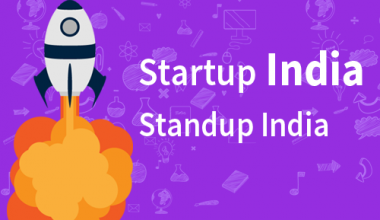
As the website has gone considerably more vibrant and dynamic, the demand for that python framework provides kept developing. Python is really a general-purpose programming language. It is easy to learn, examine and interpret, object-oriented and feature-rich to meet up the requirements of the present day digital world. Because of this, it’s very popular.
The reputation of Python in Market Place
Python can be considered as an object-oriented, dynamically-typed, interpreted and interactive programming language. Probably one of the most common and trending programming languages used by a lot of the developers will be Python.
Python may be the backbone application for the Machine Learning Engineers and Data Scientists. But this reputation isn’t only confined to a specific website like ML, Data Science and Artificial Intelligence Technology. But additionally expanding its recognition towards other technology areas like Web, IoT Development and many more.
That is all since it has an exceptional syntax rendering it different from additional programming languages which can be available in the IT business. And also it can be regarded as a beginner’s, and developer’s friendly language.
Reasons for The Popularity and Acceptance Of Python
There are lots of known reasons for the growing recognition of Python.
- An open-source general-purpose program writing language.
- Easy to understand, read through and interpret.
- Feature-rich to meet up the requirements of the present day digital world.
- Works with procedural, object-oriented, and efficient programming paradigms.
- A huge assortment of libraries for data analysis, visualization and manipulation.
- Availability of a lot of Full Stack Frameworks in addition to Non Full Stack
- Frameworks
What Really a Web Framework is?
It is only the collection of packages and modules which allows us to generate web applications quickly and never have to handle low-level pursuits like thread management or process control, and the protocol operations, etc… By using the frameworks, we are able to build our application very effectively, quickly, within a quick span. Frameworks will be like a boon for the builders because it can make the developers life easy and smooth.
Since python can be utilized by the developer’s quite a bit in the web app development company. Due to its readability, maintainability in a very convenient manner. Whenever we are discussing web development, we have to need to concentrate on both front-end and back-end section of an application. Inside a web development atmosphere, the backend platform consists of the languages and certain tools found in server-side encoding.
Two Forms of Frameworks are in the Market
Full Stack Framework
It gives complete support to builders including basic components like form generators, variety validation, and template designs etc…
There’s a lot of full stack Python frameworks which can be available in the marketplace But listed here are the best full-stack web development frameworks for Python that you could make use in 2019 for improving your web development using python.
Non Full Stack Framework
Non-full stack frameworks may also be named as Micro frameworks since it doesn’t have several components like full stack frameworks.
Ideal Python Based Web Frameworks in 2019
-
Django
Django is an open-source Python Platform for web progress. Django is really a high-level Python Web application development framework that helps us to build up things quickly, It utilizes pragmatic design. Developed by experienced programmers, it takes good care of a lot of the trouble of Web development, in order to focus on publishing your app without having to reinvent the wheel. It’s free of charge and open source.
Functions
- Ridiculously fast
- Exceedingly scalable
- Incredibly versatile
- Fully Loaded
- Reassuringly secure
-
Web2Py
Web2Py is definitely another open resource Python framework for web app development. In addition, it offers a program code editor, a debugger along with a deployment tool to check and develop website apps. Web2Py is totally cross-platform and performs properly with Unix, Linux, Macintosh, Windows, Google App Engine motor and some other platforms also.
It provides the Model View Controller (MVC) design and style. Web2Py offers SQL database, website server, and the web interface for web app developers. An online app creator can create an internet, app and revise, deploy and manage it through browsers quite easily.
In addition, it offers an uncommon element of ticketing. This Python Framework generates a solution every time one appears within the code. It can help in crushing all of the bugs in the methodical way.
Functions
- It is Easy to Setup
- Supports Cross-Platform
- Provides Database Connectivity
- Provides Security
-
TurboGears
TurboGears is really a Python framework that is clearly a full stack website app development framework. This is a data-driven platform and made up of a vision to help make the shortcomings of different web development frameworks disappear completely.
TurboGears allow web app developers to utilize various JavaScript development tools to simplify the procedure. It also permits using other resources such as for example SQLAlchemy, WebOb, Genshi and Repoze for quicker development.
TurboGears uses the Model View Controller (MVC) architecture and will be providing an Object Relational Mapper along with Ajax for server and program. Recently, it includes started supplying a minimal mode in which a developer doesn’t desire to use the full stack capabilities.
Functions
- Integration along with the MochiKit Javascript library.
- Command-line tools.
- It facilitates SQLObject and SQLAlchemy.
- It facilitates by supporting with several databases.
-
Bottle
The Bottle can be an interesting Python Framework. Developers also relate it as a micro web framework since it is very light-weight, easy and quick. It is spread without the dependencies, as being a single file.
It needs Python Standard Library, but that’s all it needs. They created it for web APIs initially. It offers different functions such as for example, directing, templating, resources and some basic abstractions.
Functions
- It allows consumers to access form data, data file uploads, cookies, along with other HTTP-related metadata in a very much simpler approach.
- It includes support a built-in HTTP server.
-
Flask
Just like Bottle, Flask can be a micro Python Framework for web app development. It generally does not require any certain libraries or resources so it’s a micro framework. Flask gives no tiers for type validation, database abstraction or such functionalities.
Nonetheless, it facilitates third-party extensions to include all those absent features. This framework is wonderful for open-ended programs and back-end.
Functions
- Very Lightweight framework
- Compatible with Google App Engine
- Built-in development server and debugger
-
CubicWeb
CubicWeb is really a semantic, free of charge and open-source Python website framework that empowers programmers to efficiently build web applications by reusing pieces (called cubes) and following a popular object-oriented design ideas. This is a good option for semantic web app development which helps bring about reusability, top quality, and efficiency.
Functions
- It has a fine security, workflow.
- It also facilitates for Resource Description Framework (RDF) and Web Ontology Terminology (OWL).
- It provides Relational Query Language (RQL) to simplify the inquiries related to data.
-
Tornado
This is a python web framework with asynchronous network libraries. Utilizing the non-blocking system I/O, the Tornado can size to thousands of open connections, rendering it ideal for prolonged polling, WebSockets, along with other applications that want a long-lived connection to each user.
Functions
- Non-blocking HTTP customer.
- It includes a high-quality performance.
- We can apply third-party authentication and authorization plans i.e (Yahoo and Google, Facebook, Twitter)
-
CherryPy
CherryPy is really a Minimalist Python Net Framework. It makes use of the Object-Oriented paradigm to build up web applications. This process helps developers to build up web applications in a short time.
Functions
- It includes a powerful configuration and adaptable plugin system.
- It can simply run on several HTTP servers simultaneously.
- It offers Built-in tool for caching, encoding, trainings, authentication, static information, and so many more.
Final Words
The above-given frameworks are the best and trusted full-stack and non-full stack backend web application development frameworks of Python for you to master in 2019. Because of the rapid growth within the technical universe, the popularity of the frameworks is escalating based on the modern web application development scenario.
As the full summary, we can say that each framework has its benefits and drawbacks. And every programmer/designer has got his/her coding models and preferences. You will need to judge the framework in accordance with your requirement. I am hoping that you’ve discovered an interesting framework in this blog.
Fusion informatics is an full stack web app development company in Bangalore, Ahmedabad, Mumbai, Noida and the mobile app development company. We have a focused team for web development, Android app development and iOS app development. Our experienced team of Python is built a noteworthy websites and web app with a number of Python Frameworks.
If you’re thinking about web development or web app development, Fusion Informatics can be your one-stop shop. You can reach us at [email protected]



